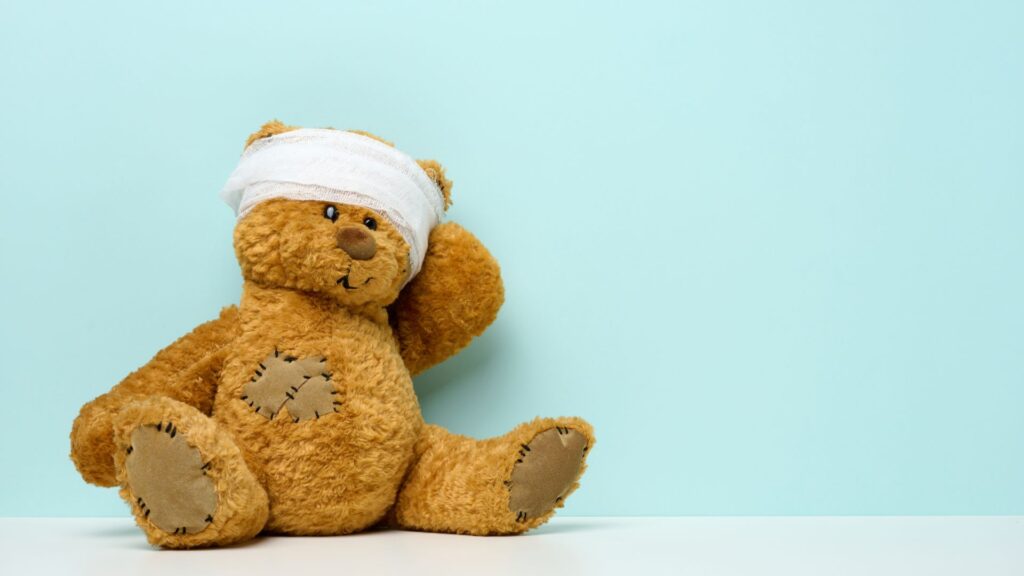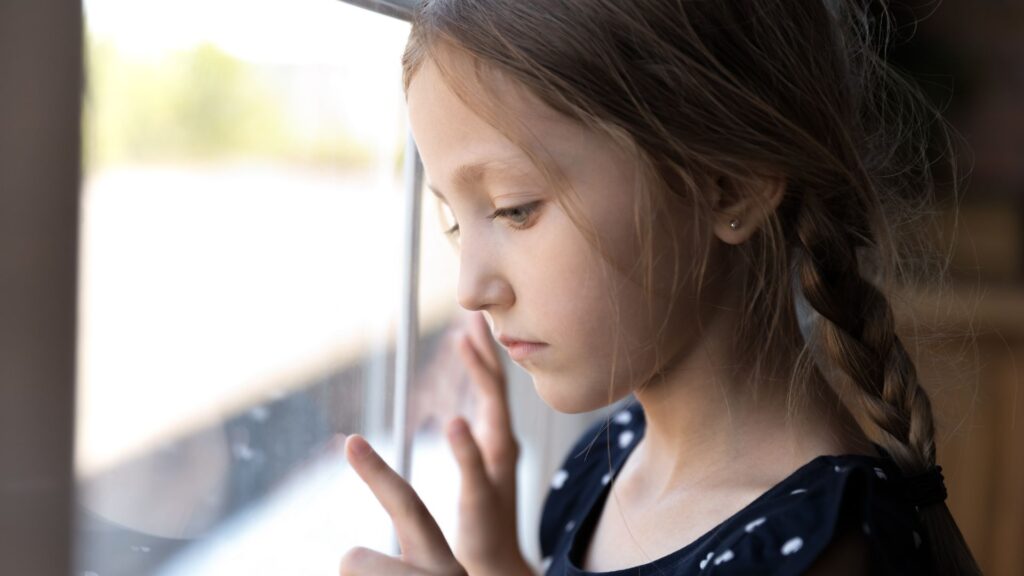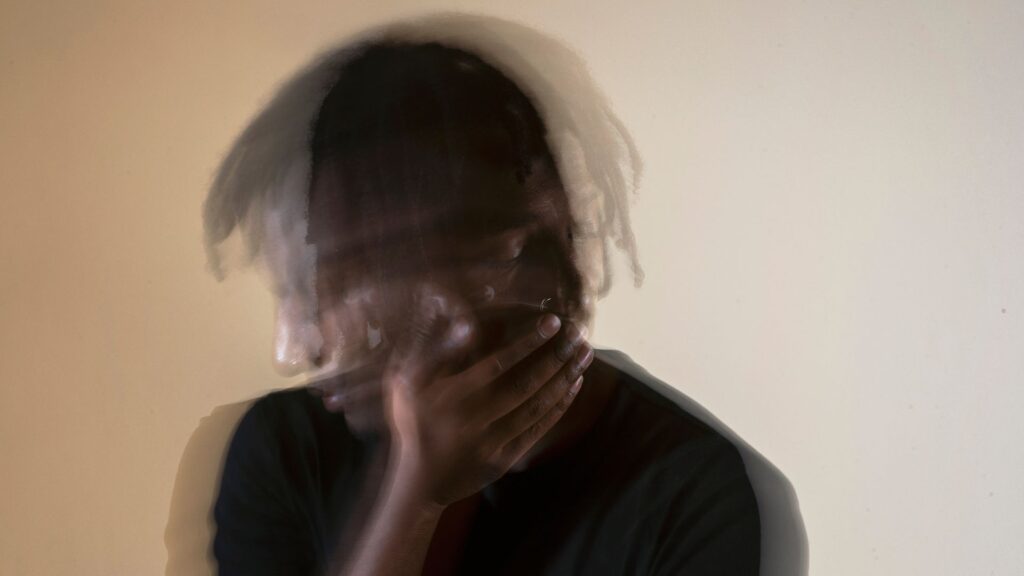Shadows of the Past: Understanding Childhood Trauma in Adults

The shadows of childhood trauma often stretch far into adulthood, shaping the lives and experiences of those affected in profound ways. Whether it is the scars of emotional abuse, the echoes of physical maltreatment, or the silent dread left by witnessing violence, the impacts are deep and lasting. Addressing these traumatic experiences is not just important—it is essential for mental and emotional healing.
The prevalence of childhood trauma is alarmingly high and often goes unnoticed until symptoms manifest in adulthood. According to a seminal study by the CDC and Kaiser Permanente, known as the Adverse Childhood Experiences (ACE) study, approximately 64% of adults report experiencing at least one traumatic event during childhood. This data highlights the critical need for awareness and early intervention.
At Counseling Associates for Well-Being, we approach these delicate issues with empathy and expertise. Our commitment is to provide a supportive environment where healing begins and resilience is built. Here’s a closer look at what we’ll cover in this article:
- Defining Childhood Trauma: What it entails and how common it is.
- Effects on Adult Life: From emotional dysregulation to chronic health issues.
- Recognizing the Signs: Understanding the hidden cues of past trauma.
- Scientific Insights: How trauma physically and mentally affects survivors.
- Pathways to Healing: Effective therapies and strategies for recovery.
- Our Role: How our specialized therapy services can guide you toward healing.
If you recognize any of these issues in yourself or a loved one, don’t hesitate to seek help. Our doors are open, and our therapists are ready to assist you on your journey to recovery.

Understanding Childhood Trauma: Definitions, Types, and Prevalence
Childhood trauma refers to the deeply distressing or disturbing experiences that a child may endure before reaching adulthood. These traumatic events can range from physical, emotional, or sexual abuse to severe childhood neglect, loss of a loved one, or exposure to natural disasters. The impact of these experiences can extend far into adulthood, influencing mental health, physical health, and interpersonal relationships.
Types of Childhood Trauma
Childhood trauma can manifest in various forms, each with its unique challenges and long-term effects:
- Physical Abuse: This includes any non-accidental physical injury inflicted on the child. It’s not just about the immediate pain and injury; the emotional scars can be equally debilitating.
- Sexual Abuse: Any form of sexual contact or behavior with a child, including inappropriate exposure, photography, or forced observation of sexual acts.
- Emotional Abuse: This might not leave visible scars, but it can be just as harmful. Constant criticism, threats, rejection, or other verbal or emotional actions harm a child’s self-esteem and emotional health.
- Neglect: Failure to provide for a child’s basic needs, including food, clothing, shelter, medical care, and education.
- Loss: The death of a close family member or friend can be traumatic, particularly if the child does not receive adequate support to process the grief.
- Exposure to Domestic Violence or Natural Disasters: Witnessing violence or surviving a natural catastrophe can trigger traumatic stress.
How Childhood Trauma Can Go Unnoticed
Many instances of childhood trauma remain unreported or undetected due to various reasons:
- Children may not report trauma because they fear retaliation from the abuser, or they may not understand that what they are experiencing is not normal.
- Adults may overlook signs, especially if they are subtle, like changes in behavior or school performance.
- Cultural or societal norms might prevent children or their guardians from seeking help due to stigma associated with abuse or mental health disorders.
Struggling with trauma symptoms? You might also want to read Beyond the Smile: Unraveling the Impact of “Good Girl” Trauma.
Trauma-focused cognitive behavioral therapy (TF-CBT) and other forms of therapy tailored to address the consequences of early trauma can significantly improve outcomes for affected individuals.

The Lingering Effects of Childhood Trauma in Adulthood
Childhood trauma leaves an indelible mark on those it touches, often carrying over into adult life in profound and pervasive ways. Unresolved childhood trauma can manifest through various mental, physical, and relational challenges, affecting everyday life and well-being. Understanding these effects is crucial for recognizing the need for effective intervention and support.
Emotional Effects of Childhood Trauma
Childhood trauma can severely impact emotional health in adulthood. Common emotional effects include:
- Anxiety and Panic Attacks: Survivors may experience heightened anxiety levels, which can escalate into panic attacks under stress.
- Depression: Persistent feelings of sadness, hopelessness, and a lack of interest in life are prevalent among those with unresolved trauma.
- Low Self-Esteem: Experiences of abuse or emotional neglect can lead to profound feelings of worthlessness and a distorted self-image.
These emotional effects are not just temporary responses but can develop into chronic mental disorders that require targeted therapeutic interventions.
Physical Effects of Childhood Trauma
The impact of childhood trauma on physical health can be just as debilitating as its emotional counterparts:
- Chronic Illnesses: There is a well-documented link between childhood trauma and the development of chronic conditions later in life, such as heart disease and autoimmune diseases.
- Sleep Disturbances: Issues such as insomnia, nightmares, and disrupted sleep patterns are common among adults who experienced trauma during childhood.
Relational Effects of Childhood Trauma
Childhood trauma can also severely affect interpersonal relationships in adulthood:
- Difficulty Maintaining Healthy Relationships: Due to trust issues and fear of vulnerability, survivors may struggle to build and maintain close relationships.
- Interpersonal Conflicts: Emotional dysregulation and unresolved trauma can lead to frequent conflicts with others, further straining relationships.
Learn more about relational trauma in Mending Broken Bonds: Understanding and Healing Relational Trauma.
Recovery from trauma is a complex and delicate journey. It requires a compassionate approach that addresses the multifaceted nature of its impact. If you or someone you know is dealing with the effects of childhood trauma, reaching out for professional help can be a significant first step towards recovery.

Recognizing the Signs of Childhood Trauma in Adults
Understanding the signs of unresolved childhood trauma in adults is crucial for beginning the journey toward healing and emotional well-being. Childhood trauma can manifest in various ways that significantly impact an individual’s daily life and relationships. Recognizing these signs can be the first step in seeking help and recovering from the past.
Common Signs and Symptoms of Unresolved Childhood Trauma
Adults who experienced childhood traumatic experiences may exhibit several emotional, physical, and behavioral symptoms:
- Emotional Symptoms:
- Persistent sadness or depression
- Unexplained outbursts of anger or irritability
- Feelings of anxiety that seem disproportionate to the situation
- Emotional numbness or difficulty feeling joy
- Physical Symptoms:
- Chronic fatigue or always feeling tired
- Sleep disturbances, such as insomnia or nightmares
- Physical reactions when reminded of the trauma, such as increased heart rate or panic attacks
- Somatic complaints without a clear medical cause, like headaches or stomach aches
- Behavioral Symptoms:
- Difficulty maintaining close relationships, often due to trust issues or fear of intimacy
- Substance abuse as a coping mechanism
- Avoidance of situations or places that recall the traumatic event
- Suicidal thoughts or behaviors
According to a study referenced by the American Academy of Pediatrics, these symptoms often persist well into adulthood if not properly addressed through therapeutic intervention.
Reflect and Recognize
It’s important for readers to reflect on their own life experiences or observe their loved ones for signs of past trauma. Here are a few steps to encourage reflection:
- Identify any chronic patterns in your emotional or physical responses that seem linked to past events.
- Consider your relationship history: Do you find a pattern of instability or fear of getting close to others?
- Think about your coping strategies: Do you often turn to substances, withdrawal, or denial when stressed?
Therapies like TF-CBT, cognitive processing therapy (CPT), and EMDR are highly effective in helping individuals work through their trauma in a structured and safe environment. With the right support and intervention strategies, individuals can restore their emotional regulation, improve their interpersonal relationships, and enhance their overall quality of life.

The Science Behind Trauma: How It Affects the Brain and Body
Trauma, whether stemming from childhood adversity, abuse, or other distressing experiences, profoundly affects both brain development and bodily functions. When a person experiences trauma, it can alter the brain’s structure, particularly areas like the prefrontal cortex, which is crucial for decision-making and emotional regulation, and the hippocampus, which is vital for memory processing.
The Body’s Response to Trauma: Fight, Flight, Freeze
During a traumatic event, the body’s immediate response is to protect itself, leading to the well-known fight, flight, or freeze reactions. These responses are the body’s primitive, automatic survival mechanisms, activated by the release of stress hormones like adrenaline and cortisol. This can lead to increased heart rate, rapid breathing, and heightened alertness, preparing the individual to either confront, flee, or become immobile in the face of danger.
The Significance of Early and Effective Intervention
Early intervention in cases of trauma is critical. Therapeutic approaches like TF-CBT and exposure therapy are specifically designed to address the complex symptoms of posttraumatic stress disorder and other trauma-related disorders. These therapies work by helping individuals process their traumatic memories in a safe and controlled environment, gradually reducing the distress they cause.
For those experiencing or knowing someone dealing with the impact of trauma, it’s important to understand that help is available and recovery is possible.

Healing from Childhood Trauma: Steps Towards Recovery
Healing from repressed childhood trauma is a transformative journey that requires patience, understanding, and dedicated support. For many adults, the path to recovery involves recognizing and addressing the deep-seated impacts of their early adverse experiences.
Acknowledging and Accepting Past Experiences
The first step in healing from childhood trauma is acknowledging that the trauma occurred and recognizing its impact on your life. This can be challenging, as it involves revisiting painful memories and emotions. However, understanding that these experiences shaped your responses and behaviors is crucial for recovery.
The Role of Self-Care and Mindfulness
Self-care is a vital component of the healing journey. It includes activities and practices that promote physical, emotional, and mental well-being. Mindfulness, a practice of being present and fully engaged in the moment without judgment, has been shown to significantly reduce symptoms of anxiety and depression associated with past trauma.
Explore the benefits of Meditation and Mindfulness for Trauma Treatment.
Developing Healthy Coping Mechanisms
Developing effective coping strategies is crucial for managing the stress that comes with recalling traumatic events. Therapy is beneficial for many survivors of childhood trauma. It helps individuals confront their traumas in a safe environment and develop skills to cope with and eventually reduce their emotional response to trauma triggers.
Remember, moving past childhood trauma is not about erasing memories but learning to live with them in a way that is healing and healthy. Healing is possible, and it starts with a single step toward help.
Transform Your Tomorrow: How Our Therapists Support Trauma Recovery
Our clinicians at Counseling Associates for Well-Being are dedicated to guiding adult survivors of trauma through their recovery journey with compassionate and personalized care.
Specialized Therapeutic Techniques
Our therapists are trained in a variety of evidence-based therapeutic techniques proven to aid in the recovery from trauma:
- Cognitive Behavioral Therapy (CBT): This form of therapy helps in identifying and changing harmful thought patterns that can arise from traumatic experiences, teaching clients how to manage stressful and disturbing thoughts effectively.
- EMDR: EMDR is particularly effective for those who have experienced severe trauma. This therapy helps to process and integrate traumatic memories in a way that reduces their lingering impact.
- Talk Therapy: Through regular sessions, our therapists engage with clients in meaningful conversations that aim to address and unpack the trauma at a pace that feels comfortable for the client.
We encourage anyone who might be struggling with the effects of childhood trauma to reach out for a consultation. Whether you’re dealing with unresolved issues, struggling with complex post-traumatic stress disorder, facing challenges in your romantic relationships, or simply need someone to talk to, our therapists are here to support you. Reach out!



Heal from Religious Trauma Syndrome | Get Help Now
[…] Are you struggling with trauma that stems from your childhood experiences? This might help – Shadows of the Past: Understanding Childhood Trauma in Adults. […]
Developmental Trauma: 4 Signs You Shouldn't Ignore
[…] Additional Reading: You can learn more about childhood trauma in Shadows of the Past: Understanding Childhood Trauma in Adults. […]
Emotional Withdrawal in Men: 4 Crucial Insights
[…] ability to connect emotionally in adulthood. Unresolved emotional pain from experiences such as childhood abuse, neglect, or significant life events often leads to emotional withdrawal as a means of […]
Can a Codependent Relationship Be Saved? From Tied Knots to Healthy Bonds
[…] Additional Reading: Learn more about the long-lasting effects of childhood trauma in Shadows of the Past: Understanding Childhood Trauma in Adults. […]
Top 3 Therapies for Overcoming Freeze Trauma Response
[…] is often rooted in past traumatic experiences. When someone has faced significant trauma, such as childhood abuse, sexual assault, or domestic violence, their body and mind can become conditioned to freeze when […]